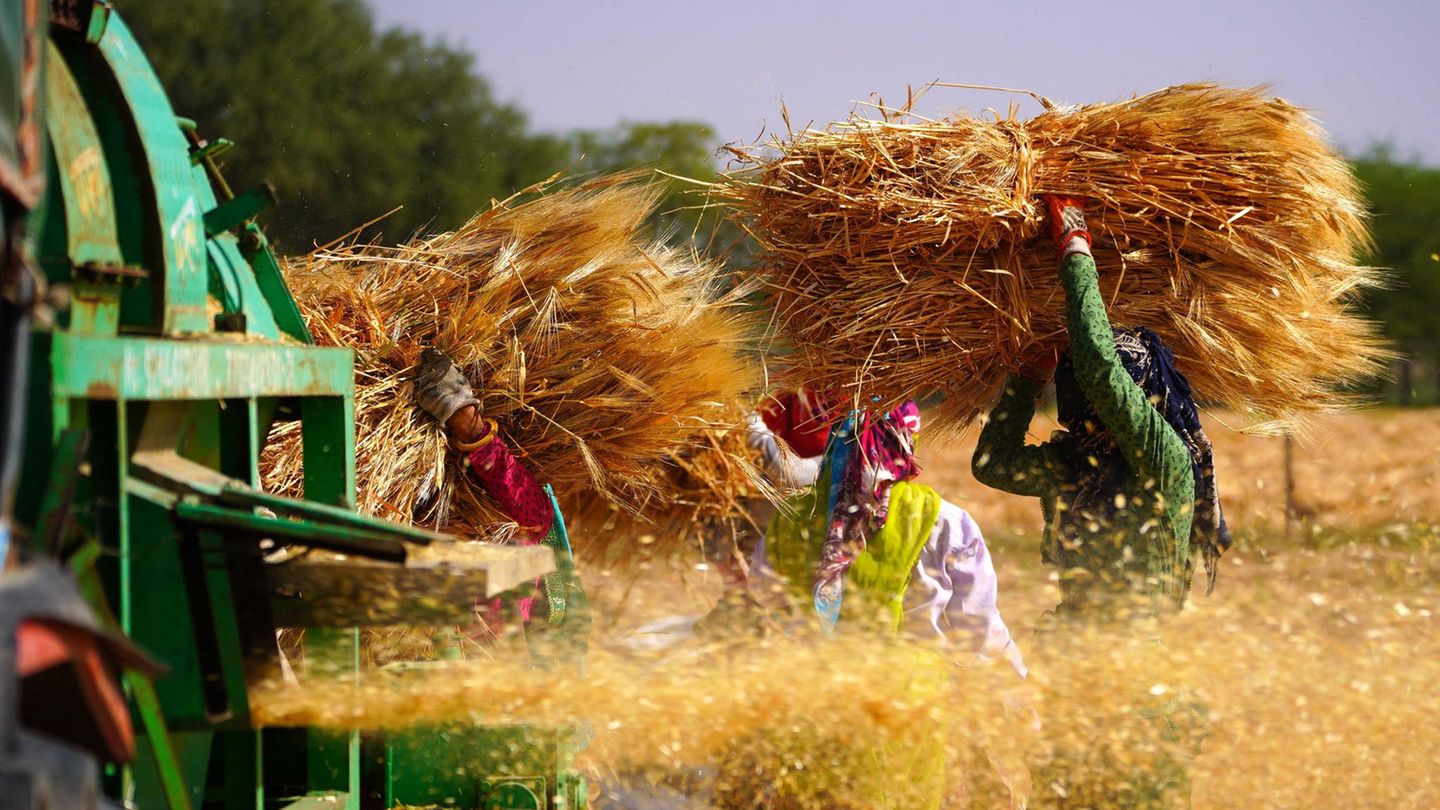In order to ensure food security at home, India has stopped wheat exports with immediate effect. Welthungerhilfe warns of an intensification of the global hunger crisis.
On Wednesday, India’s State Secretary Sudhanshu Pandey ruled out any restrictions on wheat exports. But now the country is stopping exports with immediate effect. A government statement said that the soaring world market prices are threatening the food security of India and neighboring countries.
As the second largest wheat producer, India should play an important role in the fight against the global hunger crisis. To date, around a third of global wheat and barley exports have gone to Russia and Ukraine – the “granaries of the world”. Exports have fallen sharply since the beginning of the war, and prices have subsequently risen to record highs. According to the Federal Statistical Office, import prices have reached a ten-year high (star reported).
India wanted to export ten million tons of wheat
The supply bottlenecks have led to supply shortages and hunger crises in a number of developing countries, particularly on the African continent. Before the war, India was responsible for just one percent of world wheat exports. For 2023, however, India had announced that it wanted to export ten million tons of wheat. According to “”, the country planned to close the supply gaps and open up new markets in Europe, Africa and Asia.
“At present, India has more than enough stocks of rice and wheat for export,” the newspaper quoted Devindra Sharma, a food policy expert from India’s Punjab, as saying in March. In the meantime the situation has changed. In order to get the price increase in its own country under control, India is now holding back grain. Added to this is the historic heat wave, which could lead to large-scale crop failures on the subcontinent. According to the Indian Weather Service, northwest and central India had experienced the hottest April since weather records began 122 years ago. Some farmers expect yields to be halved.
With the export ban, India joins a number of other countries that have stopped exporting certain foods since the beginning of the war. According to Washington, the number of countries that have imposed export restrictions has risen from three to 16. The exports affected are equivalent to 17 percent of the calories associated with global food exports. Welthungerhilfe is watching the developments with concern and warns of an “even more drastic increase” in the number of starving people. Around 800 million people around the world are currently suffering from hunger.
Sources: “”, “”, “”, “”
Source: Stern
David William is a talented author who has made a name for himself in the world of writing. He is a professional author who writes on a wide range of topics, from general interest to opinion news. David is currently working as a writer at 24 hours worlds where he brings his unique perspective and in-depth research to his articles, making them both informative and engaging.




